there are many more that did not seem to quite make the cut.
But that does not mean they were poor designs.
In fact, many of them were quite good, if not exceptional.
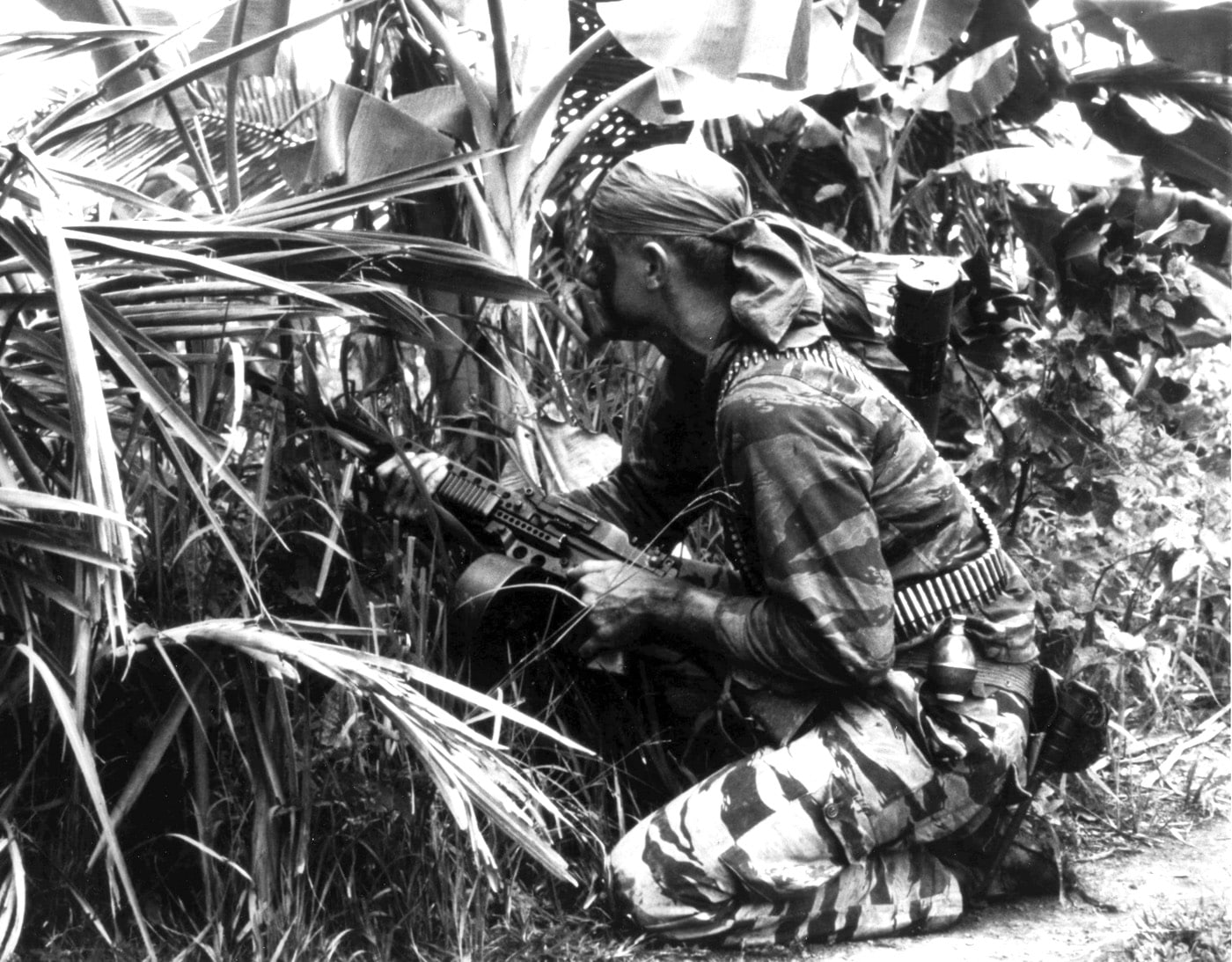
A U.S. Navy SEAL team member watches for movement in the thick wooded area along a stream in South Vietnam during October of 1968. He is armed with a Stoner 63 machine gun. Image: NARA
And this carries over to the entertainment world.
Since then, it has become iconic in movies.
These are the small arms that I believe are truly ready for their close-up and starring role.
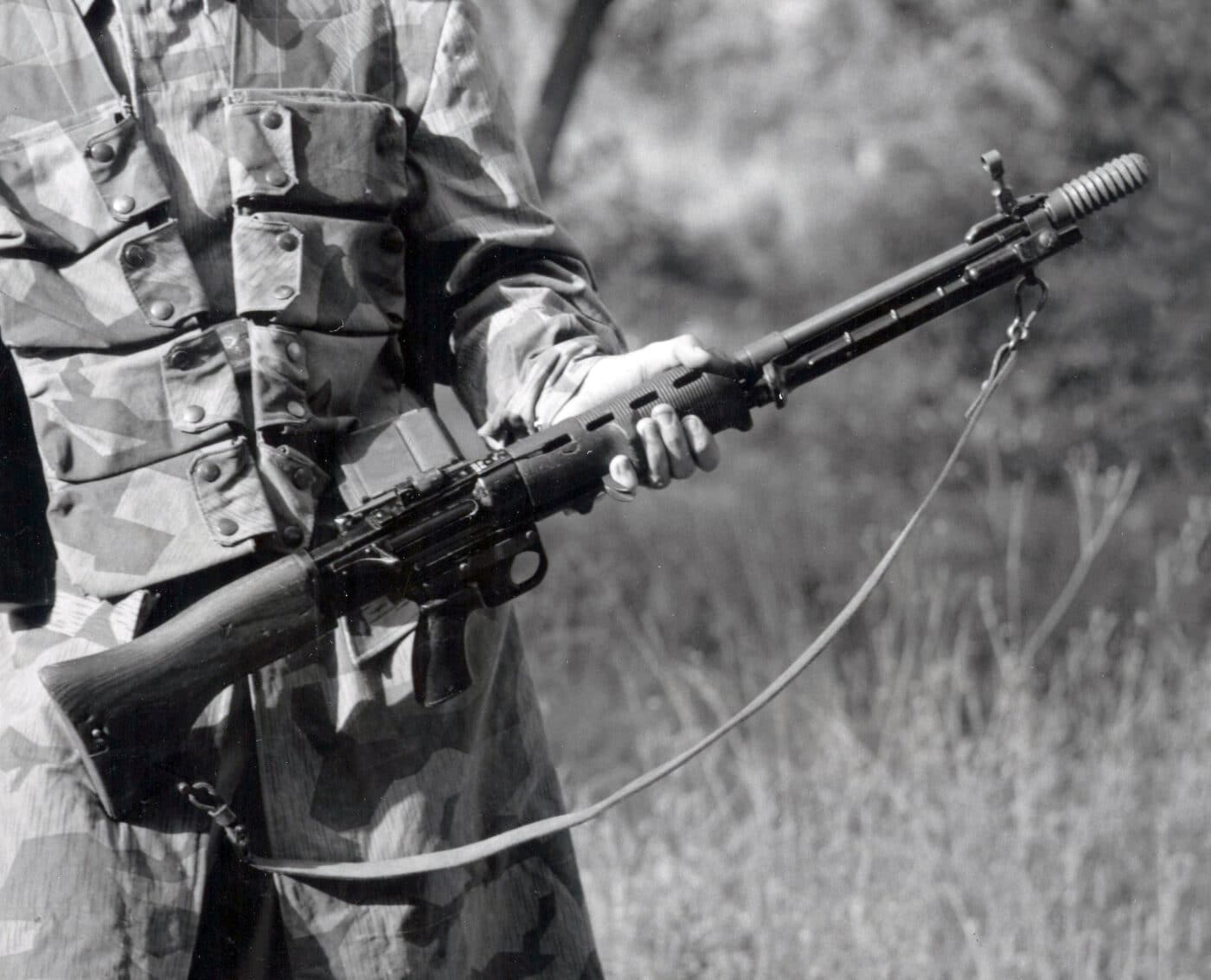
The FG42 with a standard 20-round magazine and magazine bandolier. Image: Tom Laemlein Collection
It was also developed before German designers developed theStG44, the worlds first assault rifle.
However, matters were complicated when two companies Rheinmetall-Borsig and Krieghoff began to develop prototypes of the selective-fire rifle.
It featured a steeply canted grip along with stamped metal buttstock.
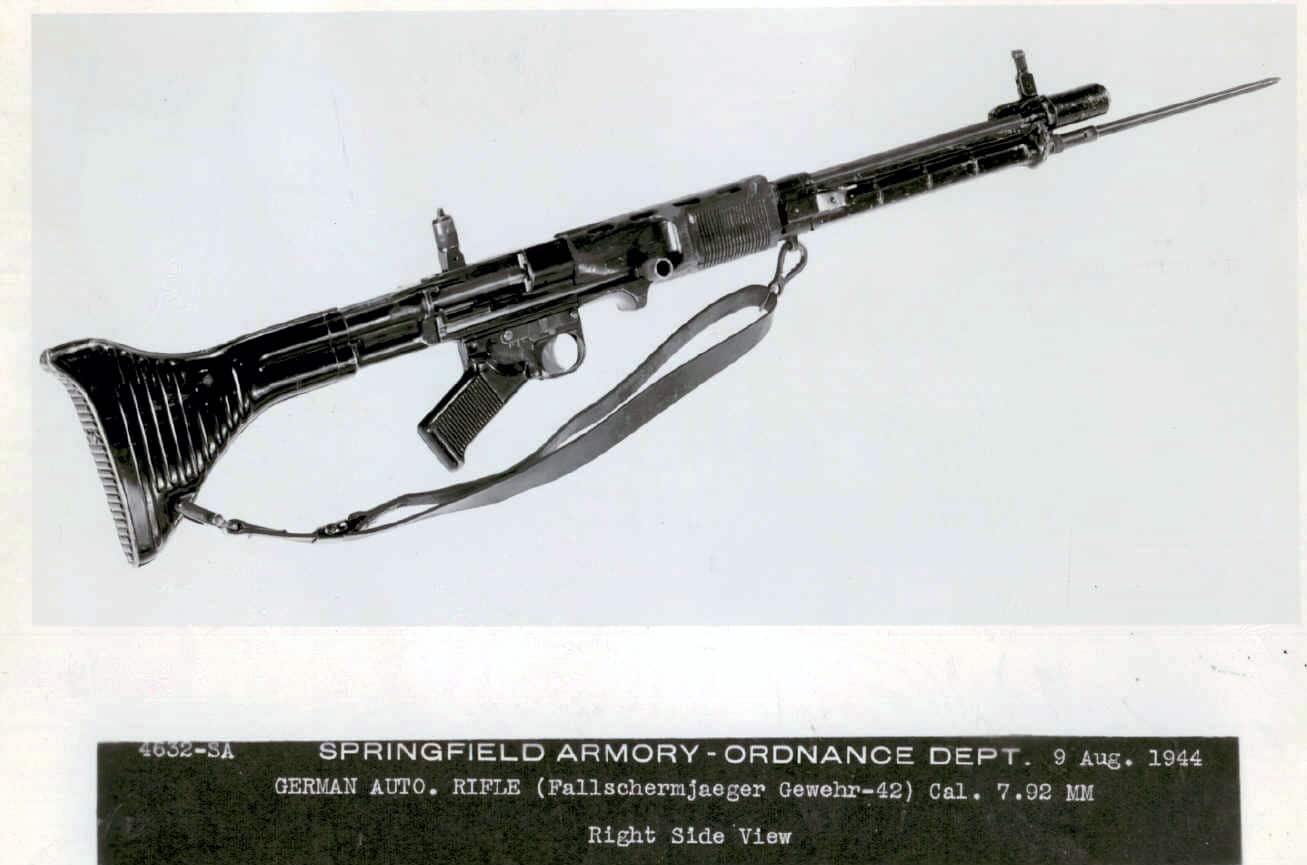
An early example of the FG 42 brought to the United States of America for testing during the summer of 1944. Image: NARA
The bipods for the weapon also proved too fragile while the stock was easily prone to damage.
About 2,000 of the first model or FG-42/I versions were produced before the weapon was redesigned by Krieghoff.
The FG 42/II model was heavier and slightly longer; featuring a wooden buttstock and a more robust bipod.

An M1941 Johnson Rifle in the upper left corner of this display at the National Museum of the United States Marine Corps. Also seen is an M50 Reising SMG. Both were used by Paramarines. Image: Author
By the wars end, about 5,000 of the second model were produced.
Because two competing firms produced the FG 42, none of the parts including the box magazine were compatible!
Despite being such an innovative weapon, the FG 42 has appeared in just two movies.
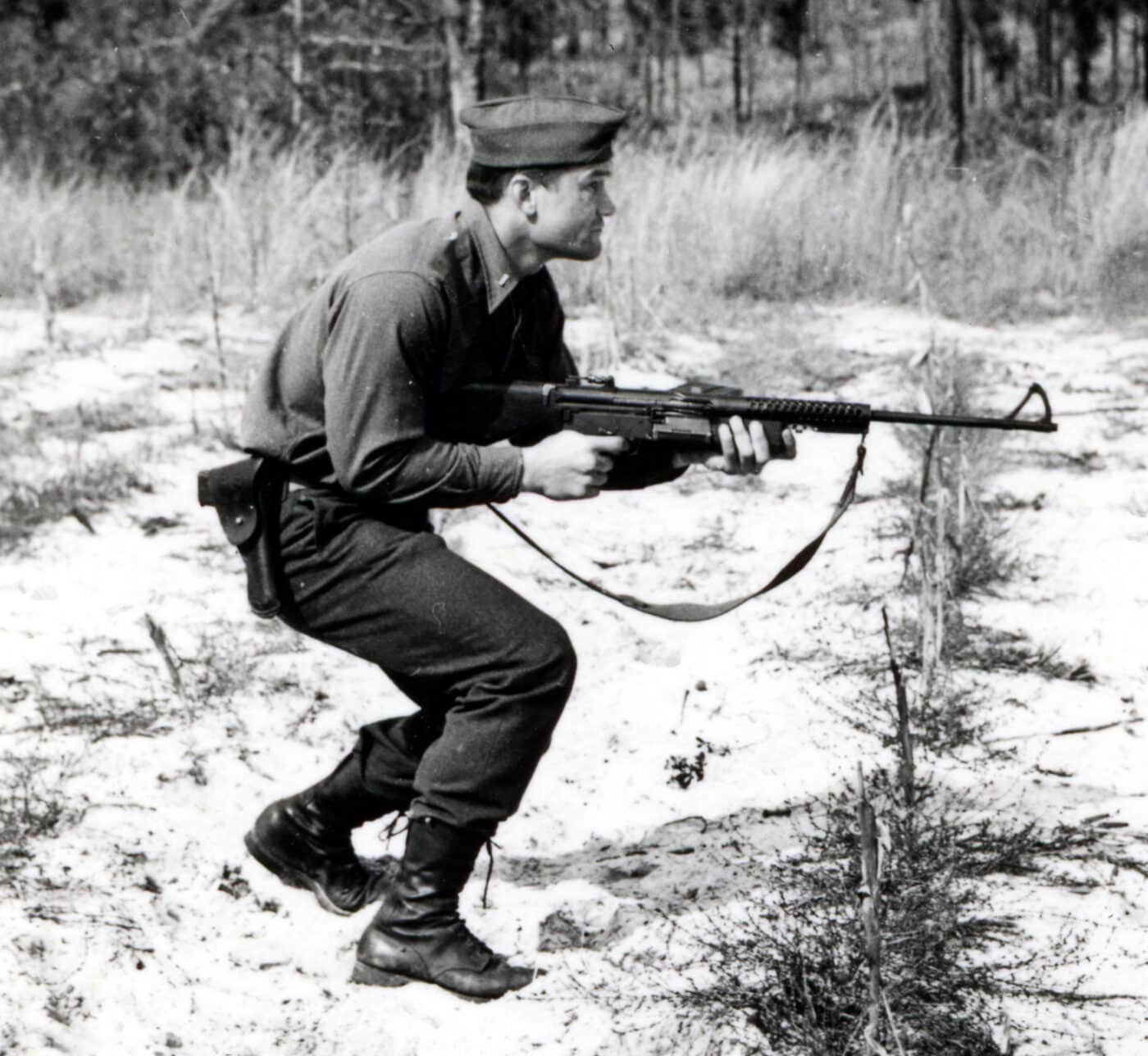
U.S. Marine Corps “Paramarine” training with the M1941 Johnson LMG at New River, North Carolina in early 1942. Image: U.S.M.C.
It unsuccessfully competed with the M1 Garand rifle but still saw limited use during the Second World War.
Again, the military thought otherwise.
Some 9,500 were built, and most saw service during World War II.
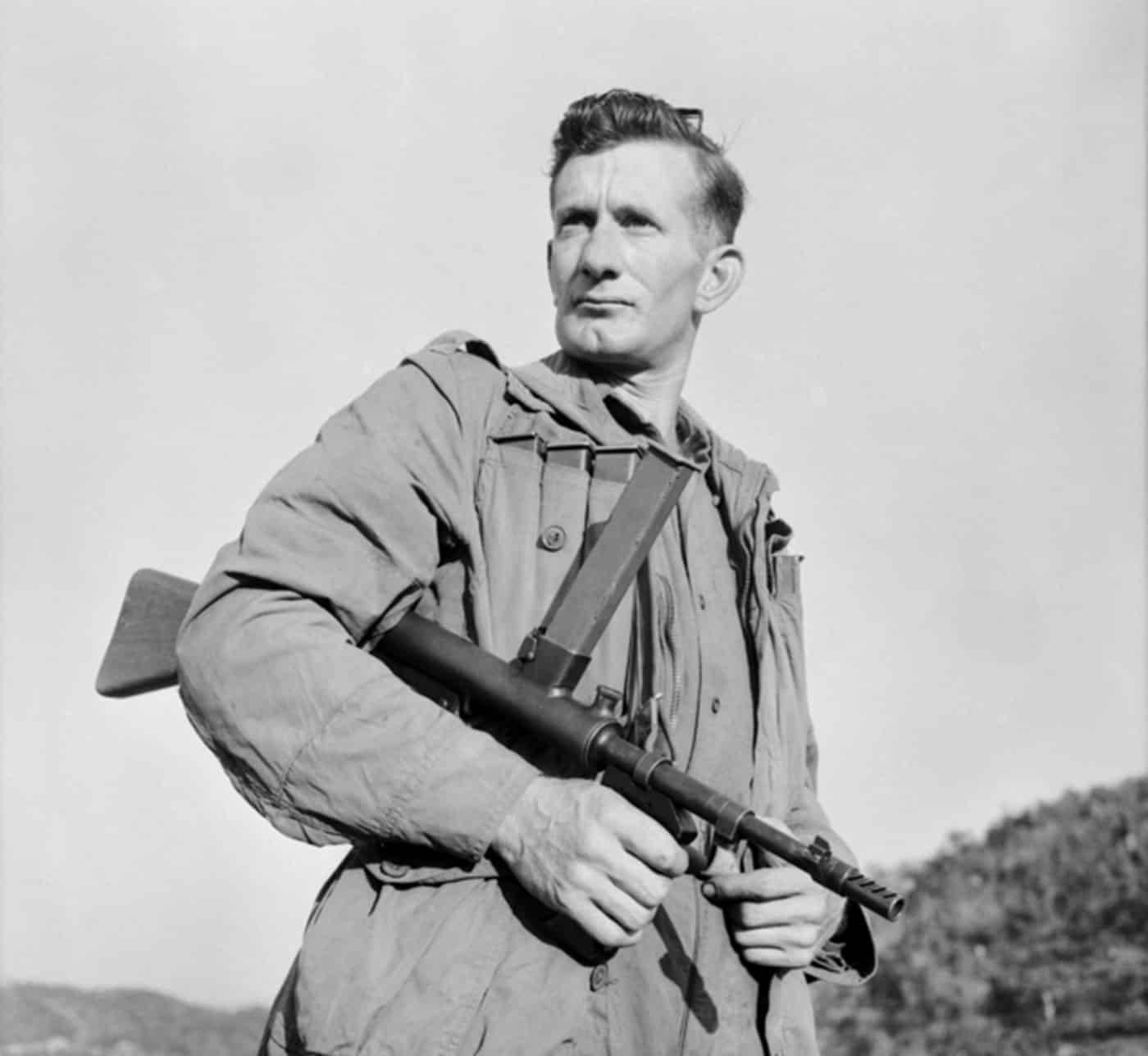
Pvt. Frank Cooper of the Australian Army, with his Owen gun at the ready, prepares to move out into “no man’s land” during the Korean War. Image: Australian War Memorial/Public Domain
The M1941 Johnson light machine gun has no film credits to date of which I can identify.
Yet, it remains an infamous firearm and one that continues to be debated among gun history enthusiasts.
It was actually developed by Evelyn Ernest Owen, a self-taught teenager, beginning in 1931.
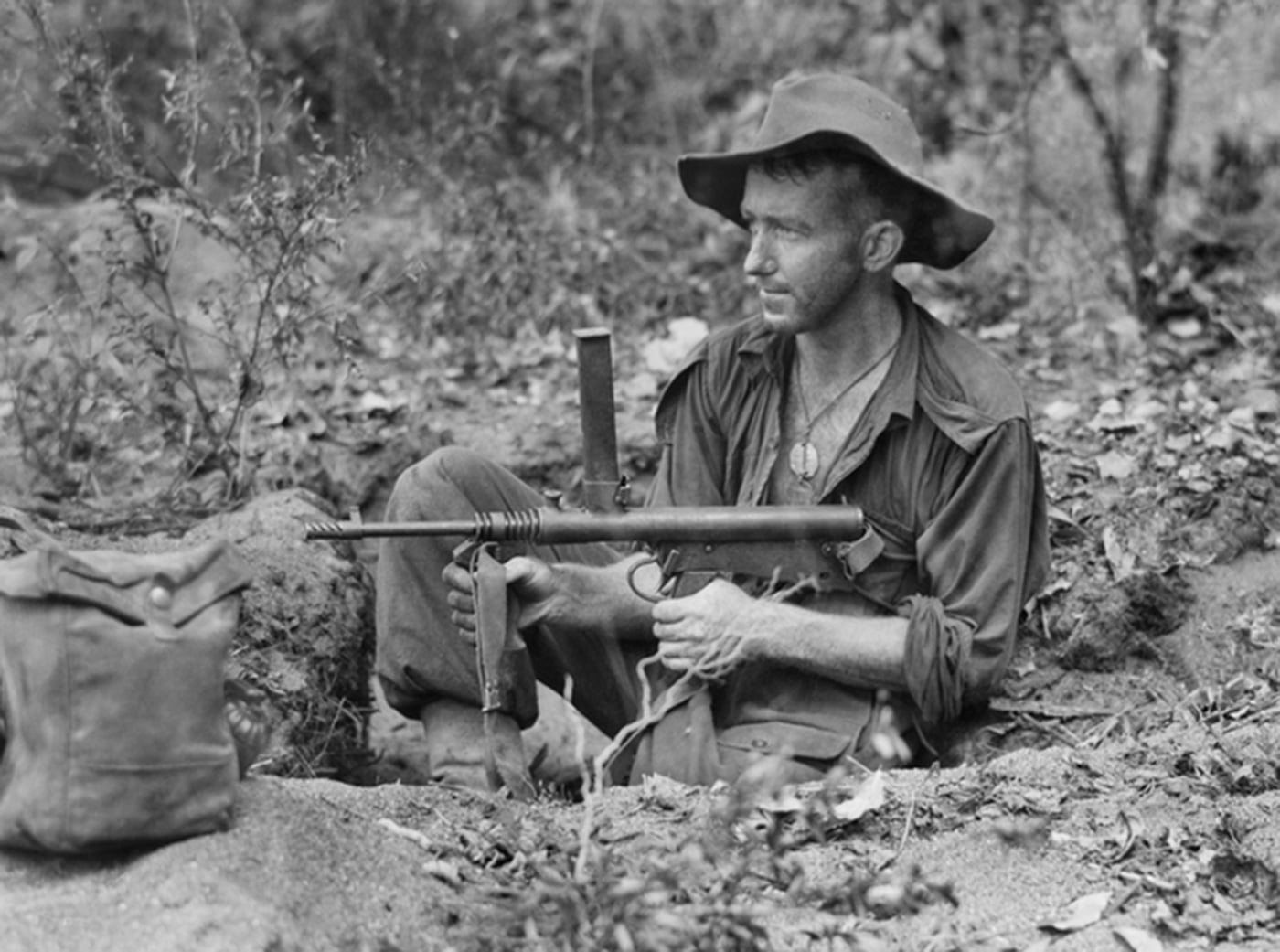
Pvt. R. F. Gaudry of the Australian Army occupies a position on New Guinea during World War II. He is armed with his Owen SMG. Image: Australian War Memorial/Public Domain
Some 45,000 were produced during World War II.
General Douglas MacArthur even considered equipping American troops with the Owen SMG.
It later saw use with Australian forces in Korea and Vietnam.
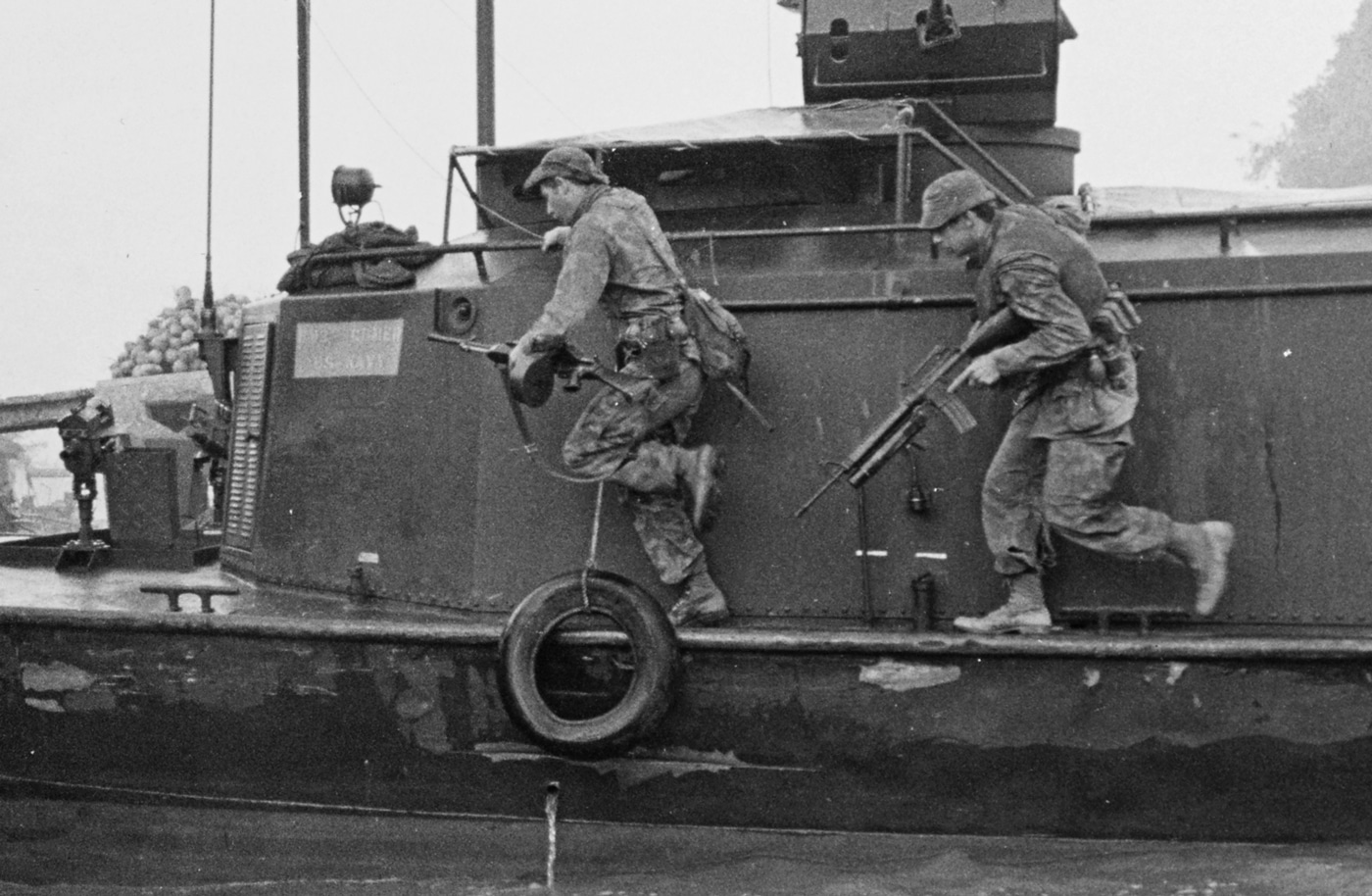
Navy SEALs disembark a patrol boat in Kien Hoa Province, Vietnam. The lead SEAL carries a Stoner 63A1 MG while his partner carries an M16 with an XM148 grenade launcher. Image: Tom Walton/U.S. Navy
He was just 33.
More recently, it appeared inKokoda(2010) andThe Railway Man(2013).
The Stoner 63 has yet to appear in a single movie I can identify.
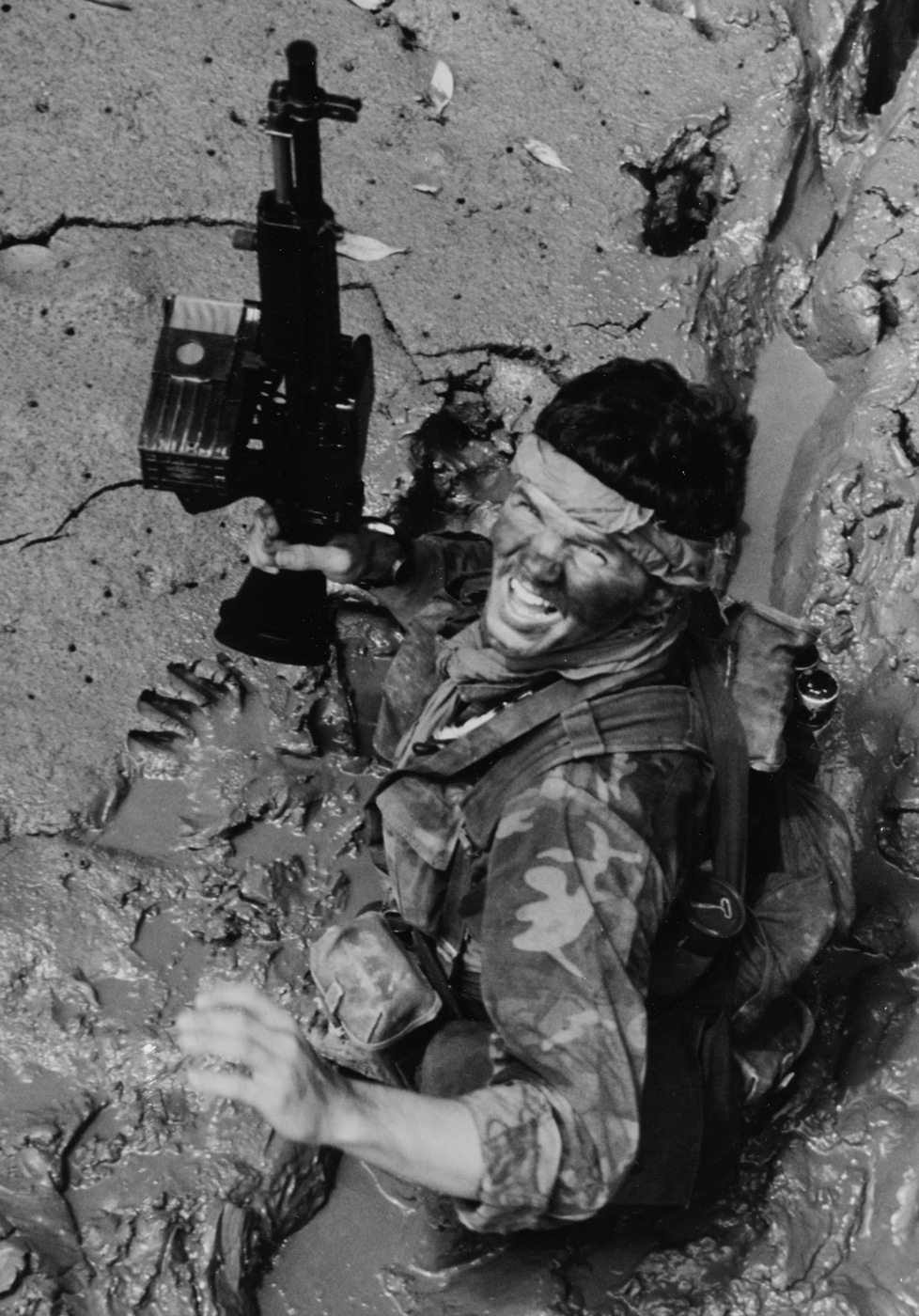
A U.S. Navy SEAL moves through deep mud as he makes his way ashore from a boat in Vietnam, May 1970. His gun is a MK 23 5.56x45mm NATO machine gun, better known as the Stoner 63. Image: NARA
Perhaps thats better than a starring role in a movie!




